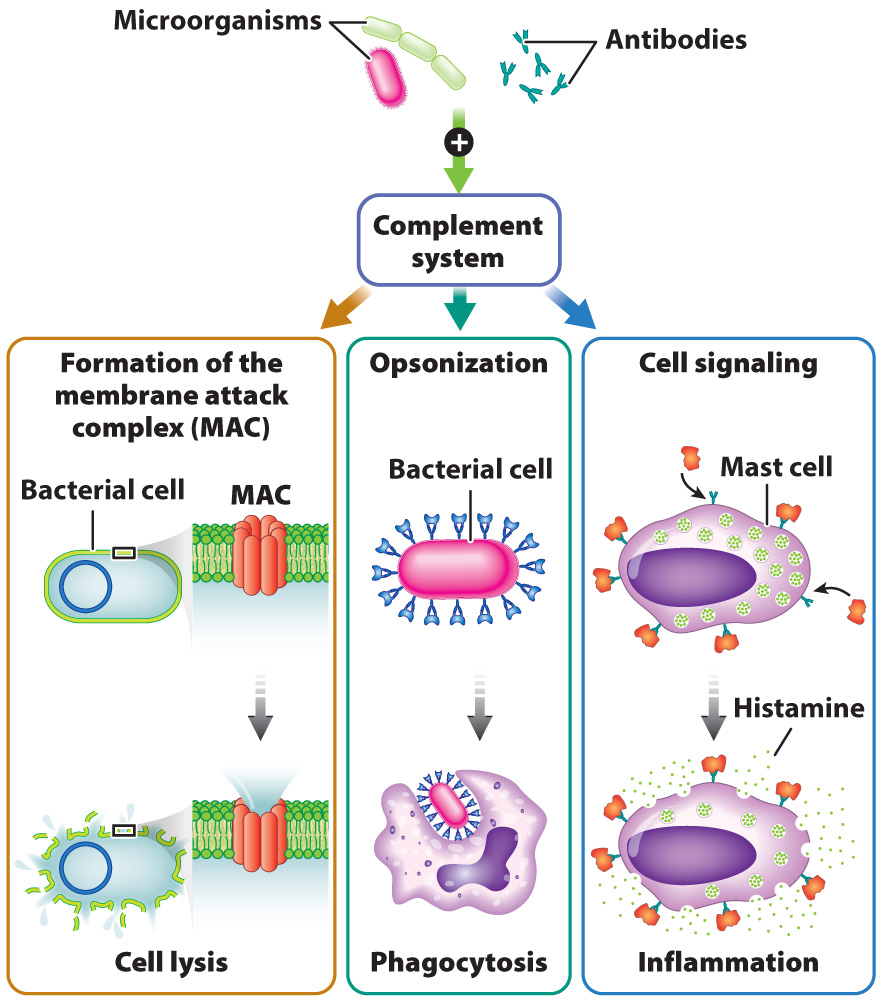The complement system participates in the innate and adaptive immune systems.
We have seen that many white blood cells participate in innate immunity, providing a general defense against pathogens. Other white blood cells participate in adaptive immunity, and they can be activated by a set of proteins that circulate in the blood. Collectively, these proteins make up the complement system, and they are also considered a part of the innate immune system. First described by Paul Ehrlich in the late 1800s, this system is so named because it supplements or complements other parts of the immune system.
The complement system consists of more than 25 types of protein that circulate in the blood in an inactive form. The system is activated when these proteins bind to molecules found only on invading microorganisms or to antibodies (discussed below). Activation sets off a biochemical cascade in which the product of one reaction is an enzyme that catalyzes the next. This kind of sequential activation leads to amplification of the response, as we saw earlier in cell signaling (Chapter 9) and in the endocrine system (Chapter 38), where a small stimulus can have a dramatic response.
Activation of the complement system has three effects (Fig. 43.7). The most dramatic occurs when complement proteins circulating in the blood are activated in such a way that they assemble to form a pore, called a membrane attack complex (MAC), in bacterial cells. The MAC causes the bacterial cell to break open, or lyse. Second, the complement system coats bacteria with a protein that phagocytes recognize, targeting them for phagocytosis. The binding of a protein to a pathogen to facilitate phagocytosis is called opsonization. Finally, activation of the complement system leads to the production of activated proteins that attract other components of the immune system. For example, some of these proteins stimulate mast cells, which release histamine and initiate the inflammatory response.

The importance of the complement system can be appreciated by considering what occurs in individuals who lack key components. Complement deficiencies are a form of immunodeficiency, a condition in which the immune system does not function properly. For example, one type of complement deficiency makes individuals susceptible to bacterial infections because fewer pathogens undergo cell lysis and opsonization. The intensity and type of symptoms can vary depending on which of the components of the complement system is lacking, from very mild, to recurrent infections, to other immunological disorders.
928
Because antibodies are an important signal that activates the complement system, and because the presence of complement proteins on a pathogen helps to activate the adaptive immune system, the complement system provides an important bridge between the innate, nonspecific part of the immune system and the adaptive, specific part, a topic we consider next.